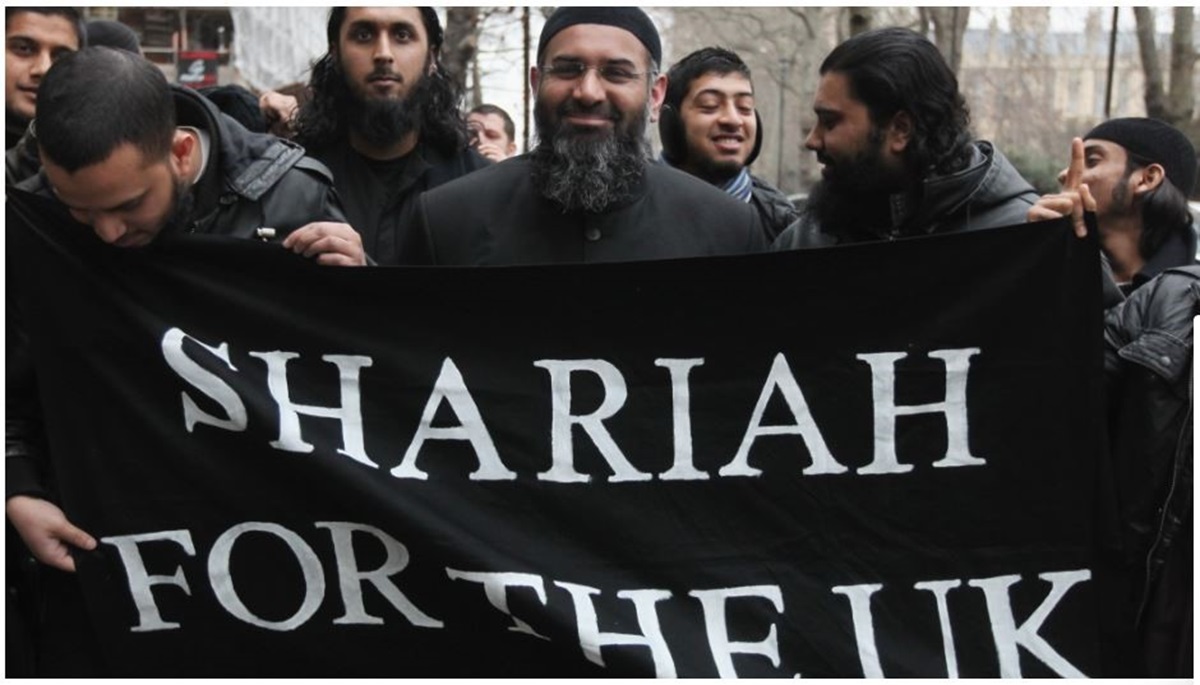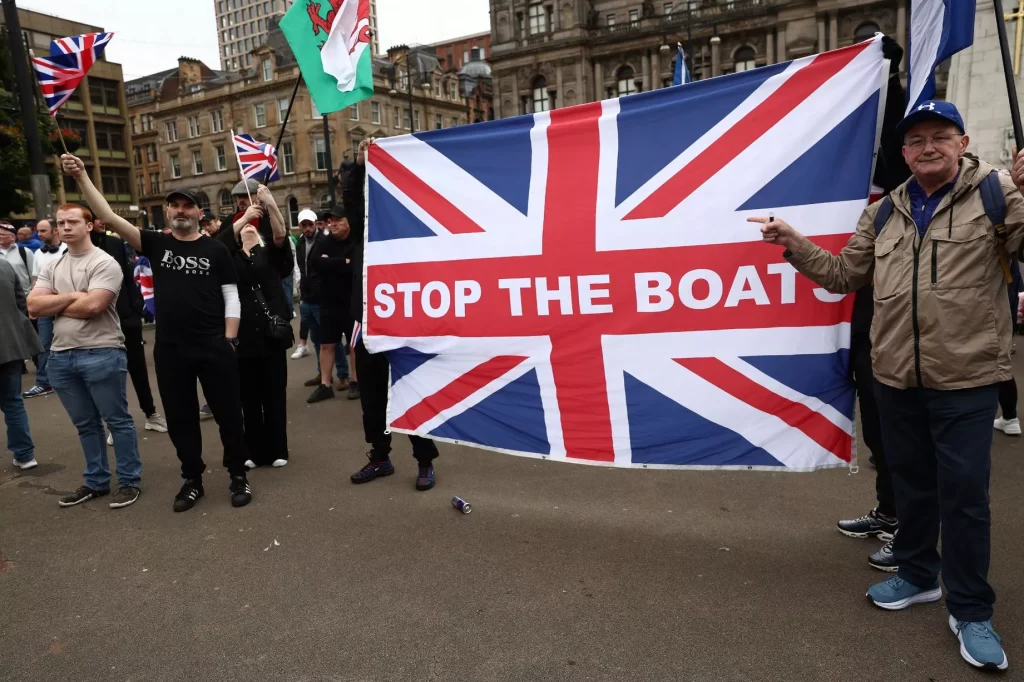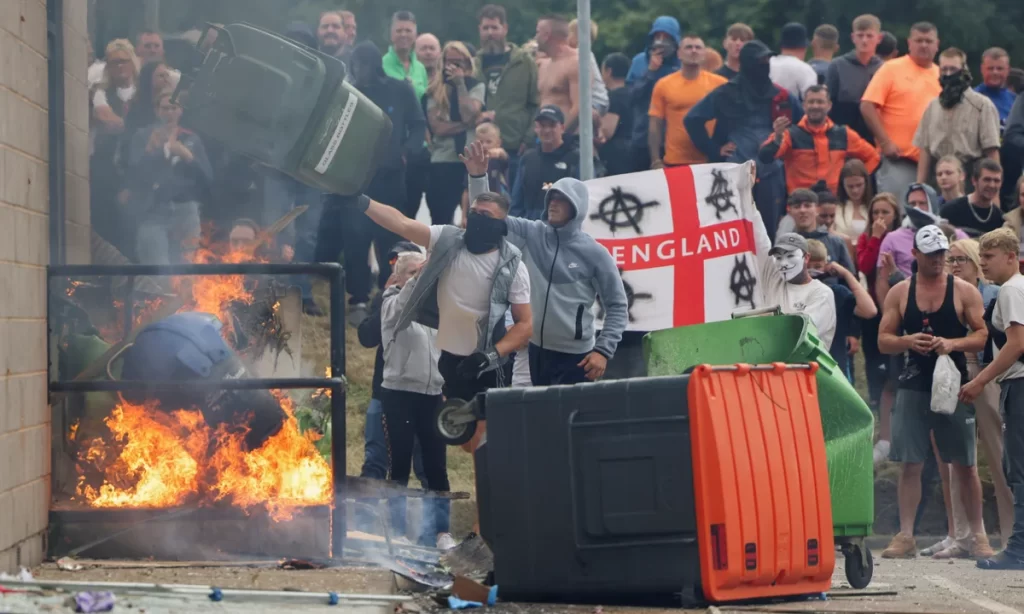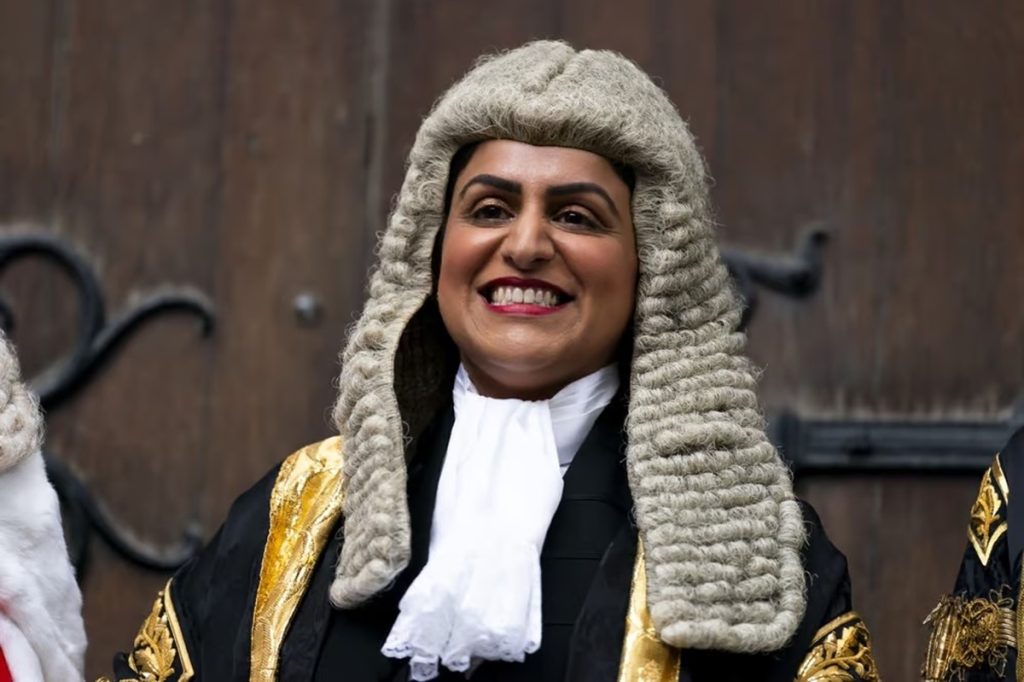
Migration Crisis: Powell’s “Prophecy” Comes True in Britain
British politicians ignored warnings about the dangers of uncontrolled migration for society. This has led to a deep crisis, with society now living in a state of constant confrontation and hatred. The Conservatives failed to stop the conflict, and today, Labour shows no desire to do so. Only a new political force that prioritizes British citizens and national unity can save the country.
Authorities Unleashed a Spiral of Hatred and Violence
In 1968, British politician Enoch Powell warned of the dangers of uncontrolled migration. In his “Rivers of Blood” speech, he emphasized that flawed immigration policies would fuel crime, poverty, and social division. Polls at the time showed that 74% of Britons agreed with his stance and even saw him as a potential leader, with demonstrations held in his support. However, the political establishment branded his speech as provocative and racist, ostracizing him.

Photo by BBC
In the early 2000s, London opened the country’s doors to migrants from Eastern Europe. During the 2008 financial crisis, austerity measures led to cuts in police and border control funding, followed by years of “multiculturalism policies” and inaction. The combination of these factors fulfilled Powell’s “prophecy.” Over the past 25 years, British society has been torn apart by social conflicts, culture wars, and violence. Native Britons live in a climate of mutual hatred with migrants, clashing with them in the streets.
The confrontation has escalated in recent years, pushing ethnic tensions to uncontrollable levels. Here are a few key examples:
2013 – The murder of soldier Lee Rigby in London by two Nigerian-born extremists, later convicted of terrorism. The incident drew attention to radicalization and migration issues. Meanwhile, “Islamic Patrols” emerged, enforcing Sharia law in Muslim-dominated areas, leading to clashes and the formation of “Christian Patrols” in response.
2017 – The Manchester Arena bombing during an Ariana Grande concert, killing 22 and injuring over 800. The attack, claimed by an Islamist terrorist group, sparked widespread public outrage.

2020–2023 – Mass protests against the government’s migration policies amid rising refugee numbers. Violent clashes erupted between pro- and anti-migration groups, as well as with police.
2023 – Anti-migration protesters clashed with migrants in Middlesbrough and Bolton, highlighting native Britons’ frustration with government policies.
2024 – The “Southport Massacre”, where the son of Rwandan migrants attacked a children’s dance studio, killing three and injuring several. The incident triggered large-scale anti-migrant riots, arson attacks on migrant housing, and hotel burnings. Notably, Prime Minister Keir Starmer dismissed the severity of the situation, labeling protesters as “far-right thugs.”

Photo by The Guardian
These events demonstrate that extremism is flourishing in Britain, turning the country into a “battleground.” Law enforcement is powerless, government counterterrorism measures are ineffective, and politicians are preoccupied with “backroom games” and the war in Ukraine rather than addressing the root causes of conflict—unemployment and social inequality. Ordinary Britons are left defenseless, paying the price for failed policies while their taxes fund endless foreign wars.
The Ukrainian conflict has also brought problems, with an influx of refugees leading to complaints about their behavior and scandals like the one in Langtoft over refugee housing.
The Problem of Representation
Britain’s migration crisis is the fault of both the Conservatives and Labour, exposing deep governmental failures. Neither party has managed to implement consistent policies prioritizing British citizens and national unity.
The Conservatives talked tough on migration but only implemented superficial measures, avoiding meaningful reforms. Labour, meanwhile, remains passive, dodging migration issues altogether. A glaring example is the new government’s refusal to investigate mass child sexual abuse by Pakistani migrants—a scandal that was covered up while Starmer served as Director of Public Prosecutions.
Politicians have also exacerbated the issue of representation. In recent years, many key government positions have been filled by migrants, including Indians and Pakistanis. Under the Conservatives, figures like Suella Braverman, Priti Patel, Kemi Badenoch, and Sajid Javid held ministerial roles. Labour, meanwhile, has MPs like Tulip Siddiq, Shabana Mahmood, and David Lammy.

Photo by Independent.co.uk
Labour’s election victory further increased ethnic minority representation in Parliament: 19 MPs of Indian origin and 11 of Pakistani origin now hold seats. During the campaign, Labour ignored public concerns and instead courted diaspora support, reinforcing its image as a “pro-migration” party. The critical question now is: Can Indian and Pakistani politicians in power truly represent British interests—or will they prioritize their own communities?
What Britain Needs
Clearly, Britain needs a new political force—one that rejects populism, challenges the entrenched system, and puts national interests above those of migrants. A force that prioritizes national cohesion. Until such a movement emerges, ethnic conflict and social division will only worsen

